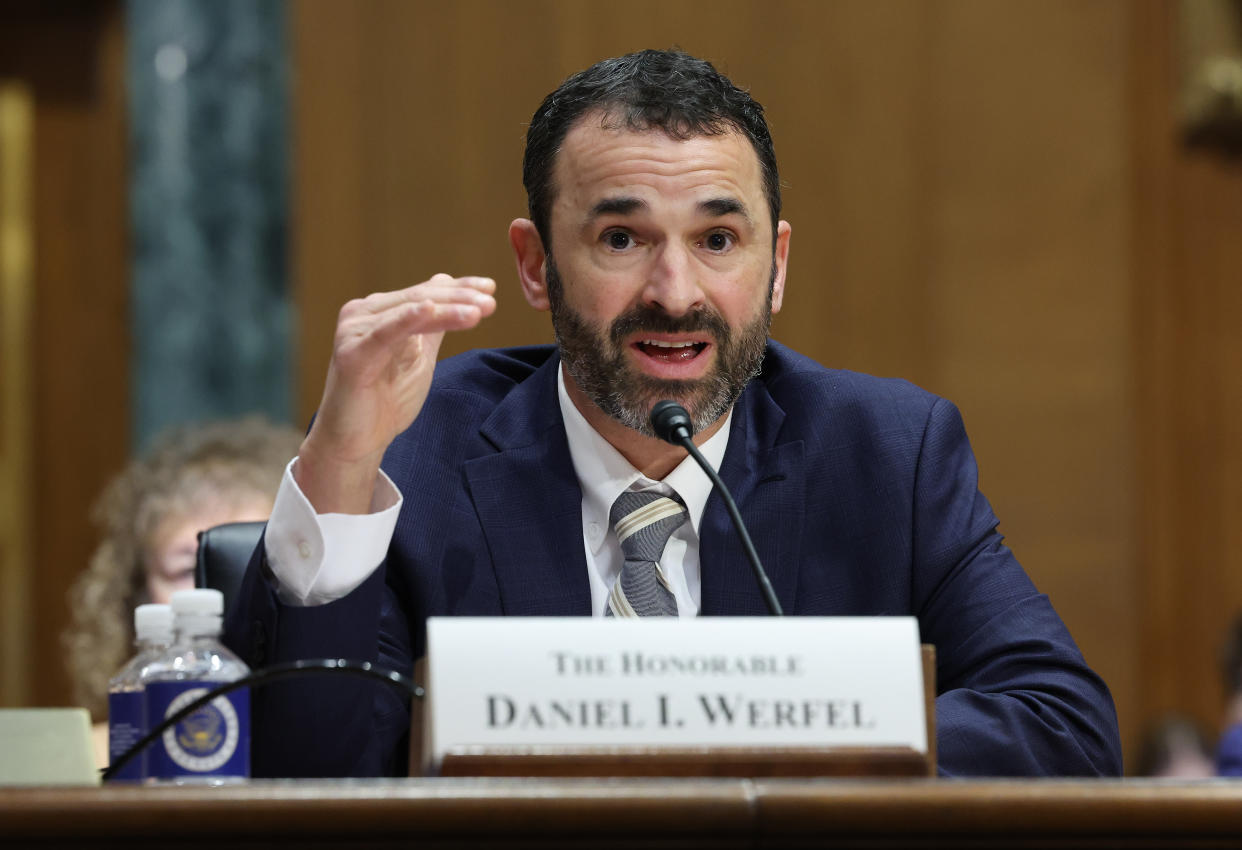IRS plans to cut back on its audits of lower-income taxpayers
The IRS won’t target low-income Americans with tax investigations as much as it had in the past.
The agency this week said it plans to reduce audits for taxpayers who claim the earned income tax credit, or EITC, a tax benefit that largely helps lower-income households. Instead, it will focus its efforts on wealthier individuals and large corporations that are not footing their tax bill as well as bad actors who victimize taxpayers.
The move should free up tax refunds faster for the families who need them the most and go a long way toward addressing the racial disparity in tax audits.
"Over-reliance on audits to resolve basic errors can lead to fewer taxpayers receiving credits and deductions for which they are eligible and thus decrease accuracy in tax administration," Commissioner Daniel I. Werfel said in a letter Monday to the Senate Finance Committee. "We are making broad efforts to overhaul compliance efforts in a manner that robustly advances our commitment to fair, equitable, and effective tax administration."

Almost half of the IRS audits in 2022 focused on families making less than $25,000 and claiming the EITC, according to Syracuse University's Transactional Records Access Clearinghouse. And the vast majority of those received the audit by mail.
That can drag out the audit process, hurting lower-income households that depend on tax refunds to pay bills and other necessities. Tax refunds can make up as much as 30% of a low-income family’s annual income, Joanna Ain, associate director of policy for nonprofit Prosperity Now, previously told Yahoo Finance.
If these taxpayers need to amend a return during an audit, that process can take up to 16 additional weeks.
These households also have a harder time navigating the audit process, because unlike wealthier taxpayers, they don’t typically have lawyers involved.
"Correspondence audit letters fail to provide a point of contact," Erin Collins, the National Taxpayer Advocate, wrote in her annual report to Congress. "Low-income taxpayers encounter communication barriers that hinder audit resolution, leading to increased burdens and downstream consequences for taxpayers."
The agency’s latest move may alleviate some of that burden.

The effort also comes after a study by Stanford in conjunction with the Treasury this year found that the Internal Revenue Service audits Black taxpayers 2.9 to 4.7 times the rate of non-Black taxpayers, with the "main source of the disparity" stemming from claiming the EITC.
A disparity in audit rates still existed among Black taxpayers who did not claim EITC benefits.
"The Commissioner's letter to the Senate was a great first start," Dorothy Brown, lawyer and tax professor at Georgetown Law, told Yahoo Finance. "Going forward, he needs to ensure that regardless of income level, Black taxpayers are not more likely to be audited than non-Black taxpayers."
The agency’s new focus is on "unscrupulous return preparers and other bad actors" such as those who file tax returns for more vulnerable taxpayers like low-income earners, taxpayers of color, and filers whose first language is not English.
The agency believes targeting these bad actors will help reduce the number of taxpayers at risk of audit.
"The initiative outlined in this letter is an outcome of the incredible work of legal thinkers and tax law professors like Dorothy Brown and Steven Dean to bring this disparity to the attention of the media and policymakers," Ain told Yahoo Finance.
"The need to focus tax audits on the wealthy and corporations and high-end tax evasion rather than households with low-incomes and households of color is critical to putting forward a fair and equitable tax code."
Ronda is a personal finance senior reporter for Yahoo Finance and attorney with experience in law, insurance, education, and government. Follow her on Twitter @writesronda.
Read the latest financial and business news from Yahoo Finance
